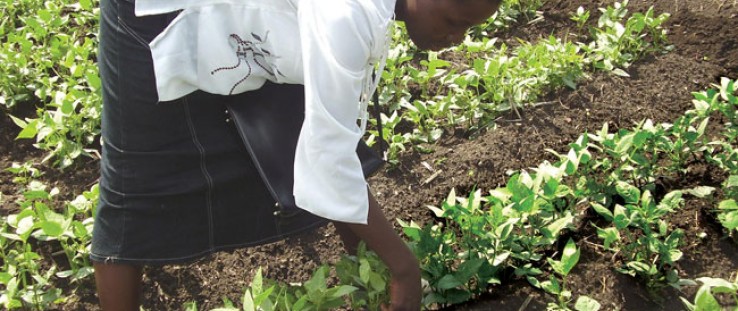 Millicent Juma of Olambwe tends to her vegetables.
Emma Odundo
Millicent Juma of Olambwe tends to her vegetables.
Emma Odundo
 Millicent Juma of Olambwe tends to her vegetables.
Emma Odundo
Millicent Juma of Olambwe tends to her vegetables.
Emma Odundo
Two years ago, 21-year-old Beatrice Kasina was a struggling fish seller on the shores of Kenya's Lake Victoria.
Seventeen-year-old Ruth Otieno was unemployed and fully dependent on the meager income of her fisherman husband.
Twenty-three-year-old Susan Opiyo, a single mother of two, was hawking tiny fish, called omena, by the roadside, desperate for motorists to stop and buy so she could feed her young children.
These three women's stories echo those of hundreds more in Kenya's lake region, where dependence on fish as the only economic resource is commonplace. But sadly, the fish industry is in decline. Environmental degradation, illegal fishing and interference with fish breeding sites have depleted fish reserves in the lake waters.
With rising competition for fewer fish, young women are particularly vulnerable: Many resort to risky sexual behavior because they do not own boats and have to rely on the whims of fishermen for supplies. The fish-for-sex trade has been an issue of concern for several years, with one analysis published in 2009 reporting 30 percent HIV prevalence among the people who live and work in fishing communities.
Today, however, life has dramatically improved for the three young women, who hold their own as successful micro-entrepreneurs. Kasina rears chicken; Otieno is a vegetable farmer; Opiyo is involved in both poultry and vegetable farming. The three have one thing in common: They are all “Value Girls.”
Value Girls is a Global Development Alliance jointly funded by USAID and the Nike Foundation to improve the socio-economic status of young women by giving them alternative sources of income. It works with women between the ages of 14 and 24 who live in the fishing communities of rural Nyanza and Western Kenya.
“Decades of research show that improving the economic status of women improves food security, wealth creation and economic growth,” says Beatrice Wamalwa, a gender specialist at USAID/Kenya.
Studies also show that higher incomes for women result in healthier households as women are more likely to spend their incomes on their children's nutritional and educational needs. According to the Food and Agriculture Organization, rural women are essential actors in reducing hunger, undernutrition and poverty because they make up 43 percent of the agricultural labor force in developing countries.
Value Girls is tapping into young women's potential and is contributing to the goals of the U.S. Government's Feed the Future initiative: reducing hunger and poverty through agriculture and improved nutrition.
The Value Girls program works through three local organizations in six districts. In market surveys, poultry and vegetable farming were deemed the most viable alternatives to fishing because of their sustainability and potential to increase women's incomes.
Related Content
According to Emma Odundo, a senior program officer with the Value Girls program, these organizations recruit women working on the beaches of Lake Victoria. “The program first mobilizes the women into self-selected groups of five or six, where they begin a savings scheme, elect leaders and decide on an income-generating activity. They are then given technical, business and financial literacy skills as well as demonstrations for either poultry or vegetable farming,” Odundo said.
Participants also receive start-up support. Poultry groups receive in-kind matching grants of the total value of their savings, usually the equivalent of $20 to $60 per group member, while vegetable-farming groups get fencing for the farms they lease. The groups can also access loans from microfinance institutions to expand their businesses or buy equipment such as water pumps for irrigation.
“Poultry Farming Changed My Life”
Value Girls allows young women to have stable incomes and reduces their susceptibility to abuse and sexual exploitation. The women's successes are also rippling through the region.
In poultry farming, for example, the young women are now the largest buyers in Nyanza and Western provinces of day-old chicks from Kenchic, the largest poultry management firm in Kenya. Between July and September 2011, 250 young women placed orders for a total of 8,000 day-old chicks—which should earn them a combined gross income of around $36,500.
The increased incomes have propelled the women's value within their households and the community: They are now considered significant contributors to society.
“My husband has a newfound respect for me because I can now ease his financial burden,” says Otieno.
“Poultry farming has changed my life,” says an elated Kasina, who is now making more in a day than she used to make in a week.
For Opiyo, it is the healthy appearance of her children that gives her the most joy. With the added bonus of a woman mentor for each of the business groups, the three are optimistic that they will surpass their current successes.
Their new lifestyles have been replicated by more than 1,400 other young women who joined the program since 2009. Having exceeded last year's target of 1,000 women, and expanded from eight to 39 beaches, USAID's $1.9 million Value Girl program may be ending in November—but none of the young women plan to abandon their new livelihoods.
“The metamorphosis is amazing. When hundreds of dependent young women become self-reliant, the effects will be felt for generations,” says Pharesh Ratego, Value Girls project manager at USAID, after visiting several beneficiaries. “By the looks of it, chicken and vegetables may soon replace fish as the local delicacy in the region.”







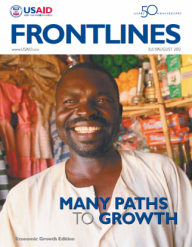

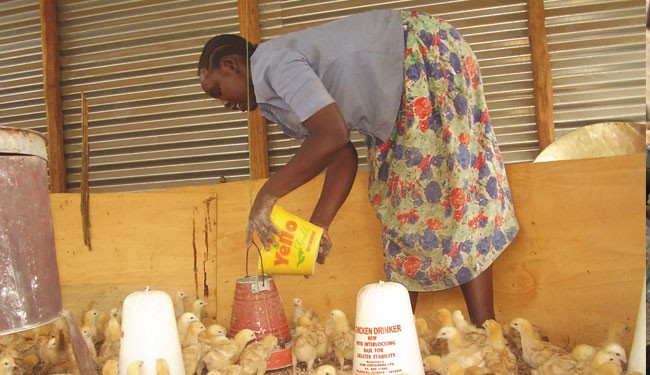
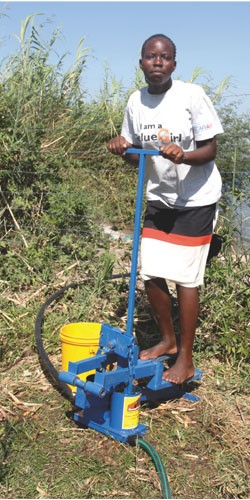
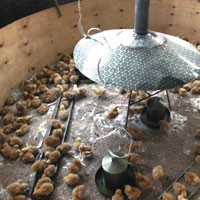
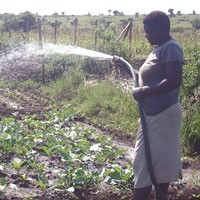
Comment
Make a general inquiry or suggest an improvement.